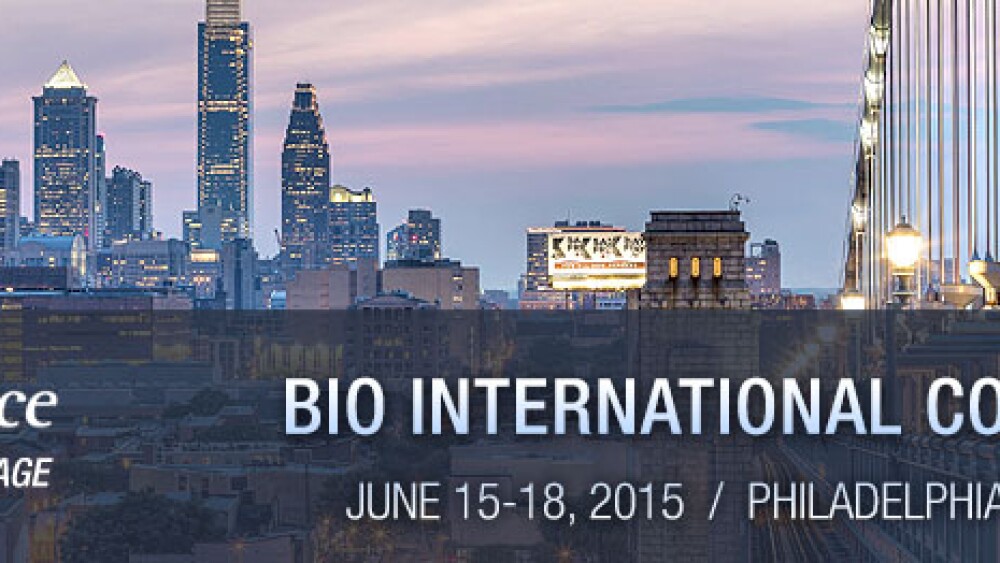June 15, 2015
By Riley McDermid, BioSpace.com Breaking News Sr. Editor
The moderator of a panel at Biotechnology Industry Organization (BIO) International on how the biotech and life sciences industry handled last year Ebola epidemic told BioSpace exclusively Monday that although there’s certainly more funding for treating the disease now, the standard of care for treating Ebola remains challenging in many poorer countries.
Elizabeth Posillico, president and CEO of Elusys Therapeutics, Inc., made the comments as part of an interview with BioSpace.
She will be moderating today’s panel Learning from the Ebola Outbreak: Sustaining and Strengthen the public-Private Partnership and Ensuring Preparedness along with Gary Disbro, director of the Division of chemical, Biological, Radiological and Nuclear Countermeasures Biomedical Advanced Research and Development Authority (BARDA); Rainer Engelhardt, assistant deputy minister and chief scientific officer for the Public Health Agency of Canada; Ron Hann, director, Chemical/Biological Technologies Department(J9CB), DTRA and USSTRATCOM Center for Combating Weapons of Mass Destruction; Michael Kurilla, director of the Office of BioDefense, Research Resources, and translational Research-DMID, NAID/NIH; Moncef Slaoui, chairman, GlaxoSmithKline Vaccines
Posillico said the biggest lessons global healthcare leaders learned from the Ebola outbreak was that they must be ready for a rapid response immediately, as opposed to the somewhat slow start last year’s crisis unfortunately experienced.
“Perhaps the starkest lesson from the recent Ebola outbreak was that, when a health crisis breaks out, it is critical that we have a rapid response capability ready to go in real time,” she said. “Investing and preparing during a crisis is far too late to save lives, and investment today is more cost-effective than investment at the time a threat is detected. Thousands of lives were already lost to Ebola before the government authorized its first advanced development contract for a vaccine.
She added that despite more funding that ever to treat and even attempt to cure Ebola, the global health community’s standard of care for outbreak/crisis situations remains the same. That is a shame, said Posillico.
“Unfortunately, I’m not certain that the Ebola threat has changed the standard response, though it has provided added rationale for investment in the development of medical countermeasures and overall preparedness,” she told BioSpace. “We saw a very clear bolus of funds immediately following identification of the present threat, followed by waning interest as the crisis became better contained. We should use this experience as a teachable moment so that we’re more invested in advance of a crisis and we’re better prepared for future events.”
However, Posillico stressed that public/private partnerships were a key part of delivering crucial medications quickly during the Ebola epidemic. She pointed to efforts by the U.S. Government, through the National Institute of Allergy And Infectious Diseases (NIAID) and the Biomedical Advanced Research and Development Authority (BARDA), to support the development of medical countermeasures against Ebola in collaboration with biopharmaceutical companies.
NIAID and BARDA also supported the development of a therapeutic to treat Ebola and multiple vaccines to prevent Ebola, which lead to contracts being awarded to Mapp Biopharmaceuticals, Profectus BioSciences, Inc. , GlaxoSmithKline , NewLink Genetics, Merck & Co. and Bavarian Nordic A/S /Johnson & Johnson .
“The lifesaving medications used during a biosecurity emergency do not just appear on pharmacy shelves or in the national stockpile,” she said.
“Governments must make clear that they are needed, and fund their development appropriately in partnership with the companies that are capable of delivering them, ideally in advance,” said Posillico. “That’s where public-private partnerships come in. The biosecurity industry does not have a natural market for its products and therefore relies on predictable government investment, complemented by its own private investment, to drive innovation.”
After AstraZeneca CMO Abruptly Quits, Where Could He Be Headed?
This week the chief medical officer of British drugmaker AstraZeneca PLC abruptly quit his post to become the chief executive officer of an unnamed, smaller biotech company. That’s lead BioSpace to wonder, with his background in R&D and in large companies like Pfizer Inc. , where will Briggs Morrison wind up? We want to know your thoughts.





